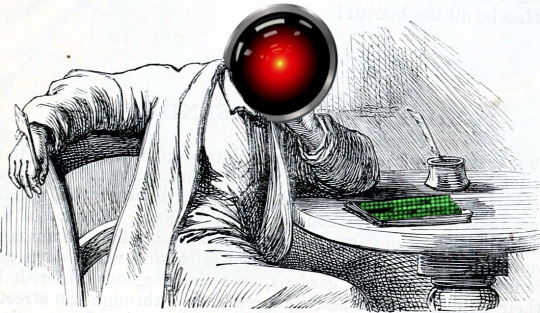#Ben Model
Text
The Silent London Poll of 2022: And the winners are …
Well done everyone! The Silent London Poll of 2022 had a record-breaking number of votes, and the winners reflect a thriving, international silent film scene. Congratulations to all the people mentioned below, some of these categories were bursting with great nominations. Thank you for all your votes. And for making me blub a little when I was typing this up.
Without further ado, let me open…

View On WordPress
#Asta Nielsen#Ben Model#Buster Keaton#Danish Film Institute#Ellen Richter#End of year poll#featured#Giornate del Cinema Muto#hippfest#Hippodrome Festival of Silent Cinema#James Curtis#John Sweeney#Norma Talmadge#Poll winners#Pordenone#Silent Comedy Watch Party#silent film#Stephen Horne#Steve Massa#Stummfilmtage Bonn
2 notes
·
View notes
Video
youtube
Charley on the Farm - Pat Sullivan & Otto Messmer (1919)
Short
#charley on the farm#charlie chaplin#charles chaplin#pat sullivan#otto messmer#silent film#short film#short#1919#1910s#animation#comedy#universal#ben model
7 notes
·
View notes
Text
See what's coming in July from Fantagraphics
See what's coming in July from Fantagraphics #comics #comicbooks #graphicnovel
Werewolf Jones & Sons Deluxe Summer Fun Annual
by Simon Hanselmann and Josh Pettinger
In the tradition of the once ubiquitous British hardback annuals comes the Werewolf Jones & Sons Deluxe Summer Fun Annual! One hundred fun-filled seasonal pages of spoofs and goofs for the whole family to enjoy (no minors allowed)! Featuring fun appearances by beloved friends of the family such as Megg, Mogg,…

View On WordPress
#alison#ben model#bill griffith#dear mini: a graphic memoir#ernie in kovacsland#fabrizio petrossi#fantagraphics#graphic novel#graphic novels#joris chamblain#josh mills#josh pettinger#lizzy stewart#natalie norris#pat thomas#scrooge mcduck: the dragon of glasgow#simon hanselmann#the buildings are barking#the comics journal#werewolf jones and sons
1 note
·
View note
Text



BEN BARNES
as William Thurber in Guillermo del Toro's Cabinet of Curiosities 1.05

#bbarnesedit#benbarnesedit#tvedit#netflixedit#perioddramaedit#cabinetofcuriositiesedit#ben barnes#cabinet of curiosities#guillermo del toro's cabinet of curiosities#pickman's model#mygifs#usermichi#ceremonial#dailynetflix#televisiongifs#mancandykings#useroptional
995 notes
·
View notes
Text
How plausible sentence generators are changing the bullshit wars

This Friday (September 8) at 10hPT/17hUK, I'm livestreaming "How To Dismantle the Internet" with Intelligence Squared.
On September 12 at 7pm, I'll be at Toronto's Another Story Bookshop with my new book The Internet Con: How to Seize the Means of Computation.

In my latest Locus Magazine column, "Plausible Sentence Generators," I describe how I unwittingly came to use – and even be impressed by – an AI chatbot – and what this means for a specialized, highly salient form of writing, namely, "bullshit":
https://locusmag.com/2023/09/commentary-by-cory-doctorow-plausible-sentence-generators/
Here's what happened: I got stranded at JFK due to heavy weather and an air-traffic control tower fire that locked down every westbound flight on the east coast. The American Airlines agent told me to try going standby the next morning, and advised that if I booked a hotel and saved my taxi receipts, I would get reimbursed when I got home to LA.
But when I got home, the airline's reps told me they would absolutely not reimburse me, that this was their policy, and they didn't care that their representative had promised they'd make me whole. This was so frustrating that I decided to take the airline to small claims court: I'm no lawyer, but I know that a contract takes place when an offer is made and accepted, and so I had a contract, and AA was violating it, and stiffing me for over $400.
The problem was that I didn't know anything about filing a small claim. I've been ripped off by lots of large American businesses, but none had pissed me off enough to sue – until American broke its contract with me.
So I googled it. I found a website that gave step-by-step instructions, starting with sending a "final demand" letter to the airline's business office. They offered to help me write the letter, and so I clicked and I typed and I wrote a pretty stern legal letter.
Now, I'm not a lawyer, but I have worked for a campaigning law-firm for over 20 years, and I've spent the same amount of time writing about the sins of the rich and powerful. I've seen a lot of threats, both those received by our clients and sent to me.
I've been threatened by everyone from Gwyneth Paltrow to Ralph Lauren to the Sacklers. I've been threatened by lawyers representing the billionaire who owned NSOG roup, the notoroious cyber arms-dealer. I even got a series of vicious, baseless threats from lawyers representing LAX's private terminal.
So I know a thing or two about writing a legal threat! I gave it a good effort and then submitted the form, and got a message asking me to wait for a minute or two. A couple minutes later, the form returned a new version of my letter, expanded and augmented. Now, my letter was a little scary – but this version was bowel-looseningly terrifying.
I had unwittingly used a chatbot. The website had fed my letter to a Large Language Model, likely ChatGPT, with a prompt like, "Make this into an aggressive, bullying legal threat." The chatbot obliged.
I don't think much of LLMs. After you get past the initial party trick of getting something like, "instructions for removing a grilled-cheese sandwich from a VCR in the style of the King James Bible," the novelty wears thin:
https://www.emergentmind.com/posts/write-a-biblical-verse-in-the-style-of-the-king-james
Yes, science fiction magazines are inundated with LLM-written short stories, but the problem there isn't merely the overwhelming quantity of machine-generated stories – it's also that they suck. They're bad stories:
https://www.npr.org/2023/02/24/1159286436/ai-chatbot-chatgpt-magazine-clarkesworld-artificial-intelligence
LLMs generate naturalistic prose. This is an impressive technical feat, and the details are genuinely fascinating. This series by Ben Levinstein is a must-read peek under the hood:
https://benlevinstein.substack.com/p/how-to-think-about-large-language
But "naturalistic prose" isn't necessarily good prose. A lot of naturalistic language is awful. In particular, legal documents are fucking terrible. Lawyers affect a stilted, stylized language that is both officious and obfuscated.
The LLM I accidentally used to rewrite my legal threat transmuted my own prose into something that reads like it was written by a $600/hour paralegal working for a $1500/hour partner at a white-show law-firm. As such, it sends a signal: "The person who commissioned this letter is so angry at you that they are willing to spend $600 to get you to cough up the $400 you owe them. Moreover, they are so well-resourced that they can afford to pursue this claim beyond any rational economic basis."
Let's be clear here: these kinds of lawyer letters aren't good writing; they're a highly specific form of bad writing. The point of this letter isn't to parse the text, it's to send a signal. If the letter was well-written, it wouldn't send the right signal. For the letter to work, it has to read like it was written by someone whose prose-sense was irreparably damaged by a legal education.
Here's the thing: the fact that an LLM can manufacture this once-expensive signal for free means that the signal's meaning will shortly change, forever. Once companies realize that this kind of letter can be generated on demand, it will cease to mean, "You are dealing with a furious, vindictive rich person." It will come to mean, "You are dealing with someone who knows how to type 'generate legal threat' into a search box."
Legal threat letters are in a class of language formally called "bullshit":
https://press.princeton.edu/books/hardcover/9780691122946/on-bullshit
LLMs may not be good at generating science fiction short stories, but they're excellent at generating bullshit. For example, a university prof friend of mine admits that they and all their colleagues are now writing grad student recommendation letters by feeding a few bullet points to an LLM, which inflates them with bullshit, adding puffery to swell those bullet points into lengthy paragraphs.
Naturally, the next stage is that profs on the receiving end of these recommendation letters will ask another LLM to summarize them by reducing them to a few bullet points. This is next-level bullshit: a few easily-grasped points are turned into a florid sheet of nonsense, which is then reconverted into a few bullet-points again, though these may only be tangentially related to the original.
What comes next? The reference letter becomes a useless signal. It goes from being a thing that a prof has to really believe in you to produce, whose mere existence is thus significant, to a thing that can be produced with the click of a button, and then it signifies nothing.
We've been through this before. It used to be that sending a letter to your legislative representative meant a lot. Then, automated internet forms produced by activists like me made it far easier to send those letters and lawmakers stopped taking them so seriously. So we created automatic dialers to let you phone your lawmakers, this being another once-powerful signal. Lowering the cost of making the phone call inevitably made the phone call mean less.
Today, we are in a war over signals. The actors and writers who've trudged through the heat-dome up and down the sidewalks in front of the studios in my neighborhood are sending a very powerful signal. The fact that they're fighting to prevent their industry from being enshittified by plausible sentence generators that can produce bullshit on demand makes their fight especially important.
Chatbots are the nuclear weapons of the bullshit wars. Want to generate 2,000 words of nonsense about "the first time I ate an egg," to run overtop of an omelet recipe you're hoping to make the number one Google result? ChatGPT has you covered. Want to generate fake complaints or fake positive reviews? The Stochastic Parrot will produce 'em all day long.
As I wrote for Locus: "None of this prose is good, none of it is really socially useful, but there’s demand for it. Ironically, the more bullshit there is, the more bullshit filters there are, and this requires still more bullshit to overcome it."
Meanwhile, AA still hasn't answered my letter, and to be honest, I'm so sick of bullshit I can't be bothered to sue them anymore. I suppose that's what they were counting on.



If you'd like an essay-formatted version of this post to read or share, here's a link to it on pluralistic.net, my surveillance-free, ad-free, tracker-free blog:
https://pluralistic.net/2023/09/07/govern-yourself-accordingly/#robolawyers

Image:
Cryteria (modified)
https://commons.wikimedia.org/wiki/File:HAL9000.svg
CC BY 3.0
https://creativecommons.org/licenses/by/3.0/deed.en
#pluralistic#chatbots#plausible sentence generators#robot lawyers#robolawyers#ai#ml#machine learning#artificial intelligence#stochastic parrots#bullshit#bullshit generators#the bullshit wars#llms#large language models#writing#Ben Levinstein
2K notes
·
View notes
Text

Ben Miller by Sasha Olsen
661 notes
·
View notes
Text
The British are coming 🇬🇧😈🔥👀💙❤️😋
449 notes
·
View notes
Text
wardrobe reveal ‼️‼️ 😝😝

#school bus graveyard#sbg#sbg (webtoon)#school bus graveyard webtoon#ben clark#Take inspo from him guys!!#Such a model#His monotone fashion is so silly#Ignore the fact that I forgot to post the picture k?
707 notes
·
View notes
Photo

100 Years of… When Knighthood Was in Flower https://bit.ly/3MvEMpF When Knighthood Was in Flower answers the question posed by Citizen Kane – just how much of a chump was media magnate William Randolph Hearst over actress Marion Davies? Here is how much – a massive movie conceived on the grandest scale, produced by a company Hearst set up expressly to make Davies a star, … Read more
#Ben Model#Forrest Stanley#Marion Davies#Robert G Vignola#When Knighthood Was in Flower#William Powell#William Randolph Hearst
0 notes
Photo

Ben Jordan by David Macke
1K notes
·
View notes
Text




Gracie Ray for @defuze.mag shot in Sydney by me, Ben Everden
#ben everden#gracie ray#gracie sprenkle#Sydney#defuze mag#photographers on tumblr#fashion#australia#model#girls#Chadwick models
174 notes
·
View notes
Video
youtube
Falling Leaves - Alice Guy (1912)
Short
#falling leaves#alice guy blanché#alice guy#1912#1910s#short film#short#silent film#ben model#solax#drama#mace greenleaf#blanche cornwall#marian swayne#usa#france
4 notes
·
View notes
Text
The Picture of Dorian Gray: *The fate of Ben Barnes' character is dominated by a supernatural portrait*
Shadow and Bone: *The plans of Ben Barnes' character are thwarted by an inconvenient portrait*
Pickman's Model: *okay, stop us if you've heard it before; there's this portrait-*
#cabinet of curiosities#Guillermo del toro's cabinet of curiosities#Ben barnes#Benjamin barnes#the picture of dorian gray#Shadow and bone#Pickman's model
2K notes
·
View notes
Text

They are revising the script to The Film Ever....

#buddy was talking ab jaylex and I got carried away with a warmup doodle take them#(holds them so so close and dearly)#they're having some dumb conversation about whether the camera model is good enough.#Jay's making fun of him. Alex is telling him to quit goofing off and stop taking pictures of random shit.#cmon merrick think about the storage space.#local cryptid draws#marble hornets#marble hornets fanart#jay merrick#mh jay#alex kralie#mh alex#mh jaylex#jaylex#'hey ben what mh pairings do you ship' 'all of them' '....all of th-' 'ALL OF THEM.'#digital art
1K notes
·
View notes
Text







BEN BARNES
as William Thurber in Guillermo del Toro's Cabinet of Curiosities 1.05

#cabinetofcuriositiesedit#benbarnesedit#bbarnesedit#horroredit#tvedit#netflixedit#ben barnes#cabinet of curiosities#guillermo del toro's cabinet of curiosities#pickman's model#mygifs#usermichi#mancandykings#ceremonial#televisiongifs#netflixdaily#useroptional#userstream
380 notes
·
View notes
Text
The real AI fight

Tonight (November 27), I'm appearing at the Toronto Metro Reference Library with Facebook whistleblower Frances Haugen.
On November 29, I'm at NYC's Strand Books with my novel The Lost Cause, a solarpunk tale of hope and danger that Rebecca Solnit called "completely delightful."

Last week's spectacular OpenAI soap-opera hijacked the attention of millions of normal, productive people and nonsensually crammed them full of the fine details of the debate between "Effective Altruism" (doomers) and "Effective Accelerationism" (AKA e/acc), a genuinely absurd debate that was allegedly at the center of the drama.
Very broadly speaking: the Effective Altruists are doomers, who believe that Large Language Models (AKA "spicy autocomplete") will someday become so advanced that it could wake up and annihilate or enslave the human race. To prevent this, we need to employ "AI Safety" – measures that will turn superintelligence into a servant or a partner, nor an adversary.
Contrast this with the Effective Accelerationists, who also believe that LLMs will someday become superintelligences with the potential to annihilate or enslave humanity – but they nevertheless advocate for faster AI development, with fewer "safety" measures, in order to produce an "upward spiral" in the "techno-capital machine."
Once-and-future OpenAI CEO Altman is said to be an accelerationists who was forced out of the company by the Altruists, who were subsequently bested, ousted, and replaced by Larry fucking Summers. This, we're told, is the ideological battle over AI: should cautiously progress our LLMs into superintelligences with safety in mind, or go full speed ahead and trust to market forces to tame and harness the superintelligences to come?
This "AI debate" is pretty stupid, proceeding as it does from the foregone conclusion that adding compute power and data to the next-word-predictor program will eventually create a conscious being, which will then inevitably become a superbeing. This is a proposition akin to the idea that if we keep breeding faster and faster horses, we'll get a locomotive:
https://locusmag.com/2020/07/cory-doctorow-full-employment/
As Molly White writes, this isn't much of a debate. The "two sides" of this debate are as similar as Tweedledee and Tweedledum. Yes, they're arrayed against each other in battle, so furious with each other that they're tearing their hair out. But for people who don't take any of this mystical nonsense about spontaneous consciousness arising from applied statistics seriously, these two sides are nearly indistinguishable, sharing as they do this extremely weird belief. The fact that they've split into warring factions on its particulars is less important than their unified belief in the certain coming of the paperclip-maximizing apocalypse:
https://newsletter.mollywhite.net/p/effective-obfuscation
White points out that there's another, much more distinct side in this AI debate – as different and distant from Dee and Dum as a Beamish Boy and a Jabberwork. This is the side of AI Ethics – the side that worries about "today’s issues of ghost labor, algorithmic bias, and erosion of the rights of artists and others." As White says, shifting the debate to existential risk from a future, hypothetical superintelligence "is incredibly convenient for the powerful individuals and companies who stand to profit from AI."
After all, both sides plan to make money selling AI tools to corporations, whose track record in deploying algorithmic "decision support" systems and other AI-based automation is pretty poor – like the claims-evaluation engine that Cigna uses to deny insurance claims:
https://www.propublica.org/article/cigna-pxdx-medical-health-insurance-rejection-claims
On a graph that plots the various positions on AI, the two groups of weirdos who disagree about how to create the inevitable superintelligence are effectively standing on the same spot, and the people who worry about the actual way that AI harms actual people right now are about a million miles away from that spot.
There's that old programmer joke, "There are 10 kinds of people, those who understand binary and those who don't." But of course, that joke could just as well be, "There are 10 kinds of people, those who understand ternary, those who understand binary, and those who don't understand either":
https://pluralistic.net/2021/12/11/the-ten-types-of-people/
What's more, the joke could be, "there are 10 kinds of people, those who understand hexadecenary, those who understand pentadecenary, those who understand tetradecenary [und so weiter] those who understand ternary, those who understand binary, and those who don't." That is to say, a "polarized" debate often has people who hold positions so far from the ones everyone is talking about that those belligerents' concerns are basically indistinguishable from one another.
The act of identifying these distant positions is a radical opening up of possibilities. Take the indigenous philosopher chief Red Jacket's response to the Christian missionaries who sought permission to proselytize to Red Jacket's people:
https://historymatters.gmu.edu/d/5790/
Red Jacket's whole rebuttal is a superb dunk, but it gets especially interesting where he points to the sectarian differences among Christians as evidence against the missionary's claim to having a single true faith, and in favor of the idea that his own people's traditional faith could be co-equal among Christian doctrines.
The split that White identifies isn't a split about whether AI tools can be useful. Plenty of us AI skeptics are happy to stipulate that there are good uses for AI. For example, I'm 100% in favor of the Human Rights Data Analysis Group using an LLM to classify and extract information from the Innocence Project New Orleans' wrongful conviction case files:
https://hrdag.org/tech-notes/large-language-models-IPNO.html
Automating "extracting officer information from documents – specifically, the officer's name and the role the officer played in the wrongful conviction" was a key step to freeing innocent people from prison, and an LLM allowed HRDAG – a tiny, cash-strapped, excellent nonprofit – to make a giant leap forward in a vital project. I'm a donor to HRDAG and you should donate to them too:
https://hrdag.networkforgood.com/
Good data-analysis is key to addressing many of our thorniest, most pressing problems. As Ben Goldacre recounts in his inaugural Oxford lecture, it is both possible and desirable to build ethical, privacy-preserving systems for analyzing the most sensitive personal data (NHS patient records) that yield scores of solid, ground-breaking medical and scientific insights:
https://www.youtube.com/watch?v=_-eaV8SWdjQ
The difference between this kind of work – HRDAG's exoneration work and Goldacre's medical research – and the approach that OpenAI and its competitors take boils down to how they treat humans. The former treats all humans as worthy of respect and consideration. The latter treats humans as instruments – for profit in the short term, and for creating a hypothetical superintelligence in the (very) long term.
As Terry Pratchett's Granny Weatherwax reminds us, this is the root of all sin: "sin is when you treat people like things":
https://brer-powerofbabel.blogspot.com/2009/02/granny-weatherwax-on-sin-favorite.html
So much of the criticism of AI misses this distinction – instead, this criticism starts by accepting the self-serving marketing claim of the "AI safety" crowd – that their software is on the verge of becoming self-aware, and is thus valuable, a good investment, and a good product to purchase. This is Lee Vinsel's "Criti-Hype": "taking press releases from startups and covering them with hellscapes":
https://sts-news.medium.com/youre-doing-it-wrong-notes-on-criticism-and-technology-hype-18b08b4307e5
Criti-hype and AI were made for each other. Emily M Bender is a tireless cataloger of criti-hypeists, like the newspaper reporters who breathlessly repeat " completely unsubstantiated claims (marketing)…sourced to Altman":
https://dair-community.social/@emilymbender/111464030855880383
Bender, like White, is at pains to point out that the real debate isn't doomers vs accelerationists. That's just "billionaires throwing money at the hope of bringing about the speculative fiction stories they grew up reading – and philosophers and others feeling important by dressing these same silly ideas up in fancy words":
https://dair-community.social/@emilymbender/111464024432217299
All of this is just a distraction from real and important scientific questions about how (and whether) to make automation tools that steer clear of Granny Weatherwax's sin of "treating people like things." Bender – a computational linguist – isn't a reactionary who hates automation for its own sake. On Mystery AI Hype Theater 3000 – the excellent podcast she co-hosts with Alex Hanna – there is a machine-generated transcript:
https://www.buzzsprout.com/2126417
There is a serious, meaty debate to be had about the costs and possibilities of different forms of automation. But the superintelligence true-believers and their criti-hyping critics keep dragging us away from these important questions and into fanciful and pointless discussions of whether and how to appease the godlike computers we will create when we disassemble the solar system and turn it into computronium.
The question of machine intelligence isn't intrinsically unserious. As a materialist, I believe that whatever makes me "me" is the result of the physics and chemistry of processes inside and around my body. My disbelief in the existence of a soul means that I'm prepared to think that it might be possible for something made by humans to replicate something like whatever process makes me "me."
Ironically, the AI doomers and accelerationists claim that they, too, are materialists – and that's why they're so consumed with the idea of machine superintelligence. But it's precisely because I'm a materialist that I understand these hypotheticals about self-aware software are less important and less urgent than the material lives of people today.
It's because I'm a materialist that my primary concerns about AI are things like the climate impact of AI data-centers and the human impact of biased, opaque, incompetent and unfit algorithmic systems – not science fiction-inspired, self-induced panics over the human race being enslaved by our robot overlords.

If you'd like an essay-formatted version of this post to read or share, here's a link to it on pluralistic.net, my surveillance-free, ad-free, tracker-free blog:
https://pluralistic.net/2023/11/27/10-types-of-people/#taking-up-a-lot-of-space

Image:
Cryteria (modified) https://commons.wikimedia.org/wiki/File:HAL9000.svg
CC BY 3.0
https://creativecommons.org/licenses/by/3.0/deed.en
#pluralistic#criti-hype#ai doomers#doomers#eacc#effective acceleration#effective altruism#materialism#ai#10 types of people#data science#llms#large language models#patrick ball#ben goldacre#trusted research environments#science#hrdag#human rights data analysis group#red jacket#religion#emily bender#emily m bender#molly white
287 notes
·
View notes